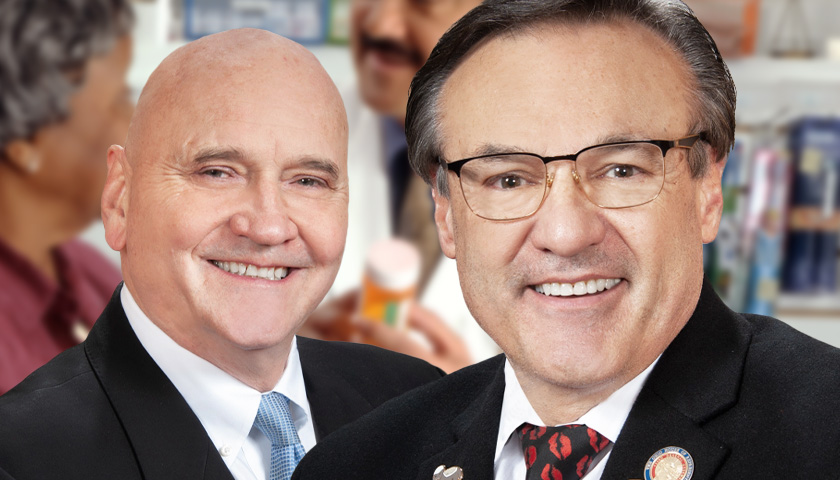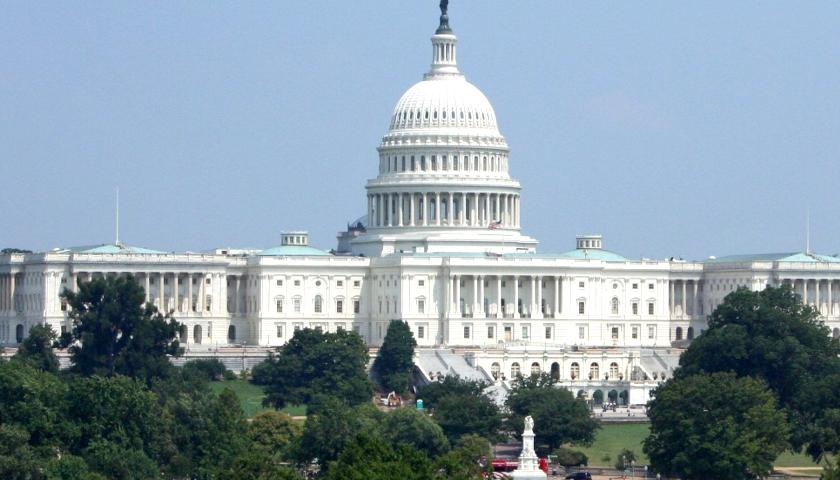A Republican-backed bill aimed to lower prescription drug costs for Ohioans made its way to the Ohio House Health Committee for its first hearing on Tuesday.
House Bill (HB) 715 sponsored by State Representatives P.Scott Lipps (R-Franklin) and Tom Young (R-Washington Township), would require the State Board of Pharmacy to develop a program for prescription drugs to be imported from Canada.
Lawmakers based the legislation on a comparable bill that Florida Governor Ron DeSantis signed into law in 2019.
Citing a section in the 2003 Medicare Modernization Act, former President Donald Trump signed an executive order in July 2020 which created the Section 804 Importation Program. The program allows Federal Drug Administration (FDA)-authorized programs in individual states to import certain prescription drugs from Canada under specific conditions that ensure, as required by section 804, that the importation poses no additional risk to the public’s health and safety while achieving a significant reduction in the cost of covered products to the American consumer.
The bill summary says that the bill will require “the State Board of Pharmacy to contract with a third-party entity to establish and administer the program.” The State Board of Pharmacy will authorize the third party “on behalf of state agencies, to negotiate prices and directly purchase from drug manufacturers any prescription drugs, including insulin and epinephrine.” Additionally, the third-party entity “must have previously assisted one or more other states in developing, establishing or administering a prescription drug importation program.”
Young states that prescription drug prices have increased nearly 180 percent from 2003 to 2020, and on average, the U.S. pays twice as much for prescriptions compared to other high-income developed nations.
According to Young, the FDA still holds imported drugs to the same level as U.S.-produced drugs.
“Imported drugs are still held to the same standards of quality assurance as if they were produced in the United States, or imported from another country using criteria that satisfies the FDA safety and effectiveness standards,” Young said.
Young said that the Importation Program does not intend to limit the availability of prescription drugs to the Canadian people but to create demand and supply, which will help lower Ohioans’ costs.
“It is important to note that prescriptions are required to either be surplus or produced in excess of what Canadian manufacturers normally make, to avoid negative impact on Canada’s internal supply,” Young said.
HB 715 will cost Ohio taxpayers $2 million appropriated from the General Revenue Fund. Young says the price is worthwhile compared to the cost savings and benefits for consumers in Ohio. In Florida, the low estimate of savings is around $150 million.
“This program will allow for great efficiency, a closed supply chain, easier reporting, visibility and accountability, and greater safety. This bill will expand access to affordable, accessible prescription medication to populations across Ohio who are most in need,” Young said.
The bill has not garnered any opposition to date but Young states he anticipates the pharmacy community will try to shut the legislation down.
“They’ll be coming at us with every single thing they have in the pharmacy community, to defeat any effort to create supply in our country at a cost basis that people can afford, that can save lives,” Young said.
As of 2022, there are currently 23 other states that are pursuing legislation to enact a Canadian Drug Importation Program.
– – –
Hannah Poling is a lead reporter at The Ohio Star and The Star News Network. Follow Hannah on Twitter @HannahPoling1. Email tips to [email protected].
Photo “P. Scott Lipps” by The Ohio House of Representatives. Photo “Tom Young” by The Ohio House of Representatives. Background Photo “Pharmacist Consult” by Oregon State University. CC BY-SA 2.0.





